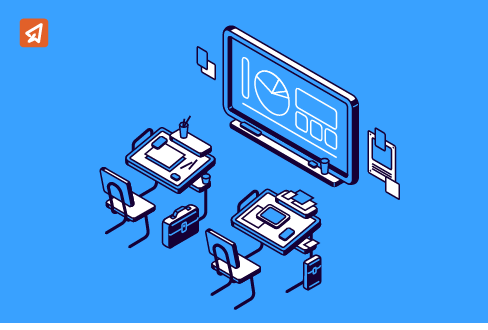Understanding PARAKH: Full Form, Key Benefits, and Its Importance

The National Education Policy (NEP) 2020 introduced a new initiative called PARAKH, which serves as a national body aimed at setting standards for student assessments across schools in India.
According to Prime Minister Narendra Modi, PARAKH was established to improve the way students are evaluated, ensuring a more comprehensive system that goes beyond just academics. He stressed the importance of providing education that prepares students for real-world industries and practical challenges. By linking learning to the surrounding environment, students can gain valuable, hands-on experience.
In this blog, we’ll explore what PARAKH is, its main objectives, benefits, and much more. Let’s dive in!
What is PARAKH?
The full form of PARAKH stands for Performance Assessment, Review, and Analysis of Knowledge for Holistic Development.
PARAKH was established as a separate unit within NCERT, following a notification on February 8, 2023 (Notification no. 1-4/2012-EC/101-164). Its main goal is to create standards, set guidelines, and manage activities related to student assessments.
Aligned with Para 4.4.1 of NEP 2020, PARAKH plays a crucial role in transforming the assessment framework, focusing on competency-based learning and holistic development. It also undertakes additional tasks outlined in National Education Policy (NEP) 2020 to improve the overall assessment system in education.
There are four main areas that PARAKH focuses on, which we’ll explore in detail.
4 Focus Areas of PARAKH in NEP 2020
-
Capacity Development in Competency-Based Assessment
Project Vidyasagar – PARAKH, in partnership with the PhD Chamber of Commerce (PhDCC), is hosting a series of workshops across India. These workshops aim to spread knowledge about learning competencies at different educational levels—Foundational, Preparatory, Middle, and Secondary—according to the National Curriculum Framework 2023 (NCF 2023). The goal is to help educators and teachers understand the new teaching methods and policy changes introduced by NCF 2023. This will help address any gaps in implementing competency-based learning and teaching.
-
Large-Scale Achievement Survey
PARAKH is responsible for conducting large-scale surveys to monitor and evaluate educational progress across the country. On 3rd November 2023, PARAKH conducted the State Educational Achievement Survey, assessing students in Grades 3, 6, and 9 to evaluate their skills in Foundational Numeracy, Language, Literacy, and Mathematics. This survey, carried out in all 30 States/UTs, involved approximately 8 million learners. Due to assembly elections, Rajasthan and Chhattisgarh conducted their assessments later in December, increasing the sample size to around 8.5 million.
-
Equivalence of School Boards
PARAKH is working towards standardizing examination practices across various school boards in India. This effort aims to ensure that all forms of learning—academic, vocational, or experiential—are given equal credit. To support this, PARAKH held regional workshops from June to August 2023, gathering data on administration, curriculum, assessments, and infrastructure from different boards.
Tools like the Equivalence Questionnaire and Question Paper Template Analysis were used for data collection. Based on this data, a report was prepared to highlight areas needing improvement. National workshops in November and December 2023 allowed boards to review and comment on the report, leading to the drafting of policy recommendations for achieving examination equivalence.
-
Holistic Progress Cards
PARAKH is developing Holistic Progress Cards for the Foundational, Preparatory, Middle, and Secondary educational stages. These 360-degree Holistic Progress Cards aim to provide a more complete assessment of competency-based learning by offering a thorough and well-rounded view of student progress.
Benefits of PARAKH
- Reduces Cramming: PARAKH moves away from last-minute studying by focusing on helping students understand concepts deeply rather than just finishing a curriculum. This approach encourages the development of fundamental learning principles and enhances students’ understanding of the material.
- Promotes Practical Knowledge: PARAKH emphasizes hands-on learning. Students get opportunities to engage with computer labs, science labs, and other specialized facilities. This practical experience helps students connect theory with real-world applications and reduces dependence on textbook knowledge alone.
- Lessens Student Stress: Traditional exams can cause anxiety and stress among students. PARAKH aims to reduce this pressure by improving the assessment and evaluation process. This approach helps manage student workload more effectively and promotes a healthier learning environment.
- Prepares for Industry: PARAKH incorporates business-related subjects and technical skills into the curriculum. By learning subjects like math, physics, and science in a practical context, students gain knowledge that’s valuable not just for school but also for future college studies and careers.
Closing Thoughts
PARAKH aims to transform student assessments by focusing on holistic development and practical knowledge. By moving beyond traditional exams and emphasizing real-world applications, it seeks to enhance learning experiences and better prepare students for future challenges. As we explore PARAKH’s initiatives, it’s clear that this approach could significantly impact the education system in India, creating a more supportive learning environment.
Last Updated on February 28, 2025
Reviewed by

Priya Kapoor | AVP - Academics
Priya Kapoor is an accomplished education professional with over 18 years of experience across diverse fields, including eLearning, digital and print publishing, instructional design, and content strategy. As the AVP – Academics at Extramarks, she leads academic teams in creating tailored educational solutions, ensuring alignment with varied curricula across national and international platforms...read more.









